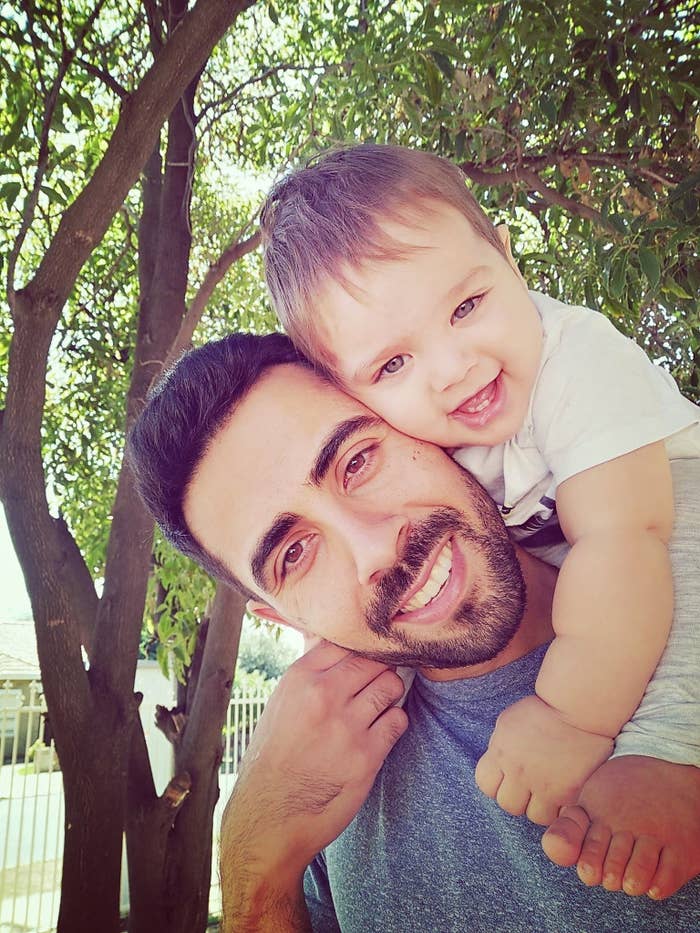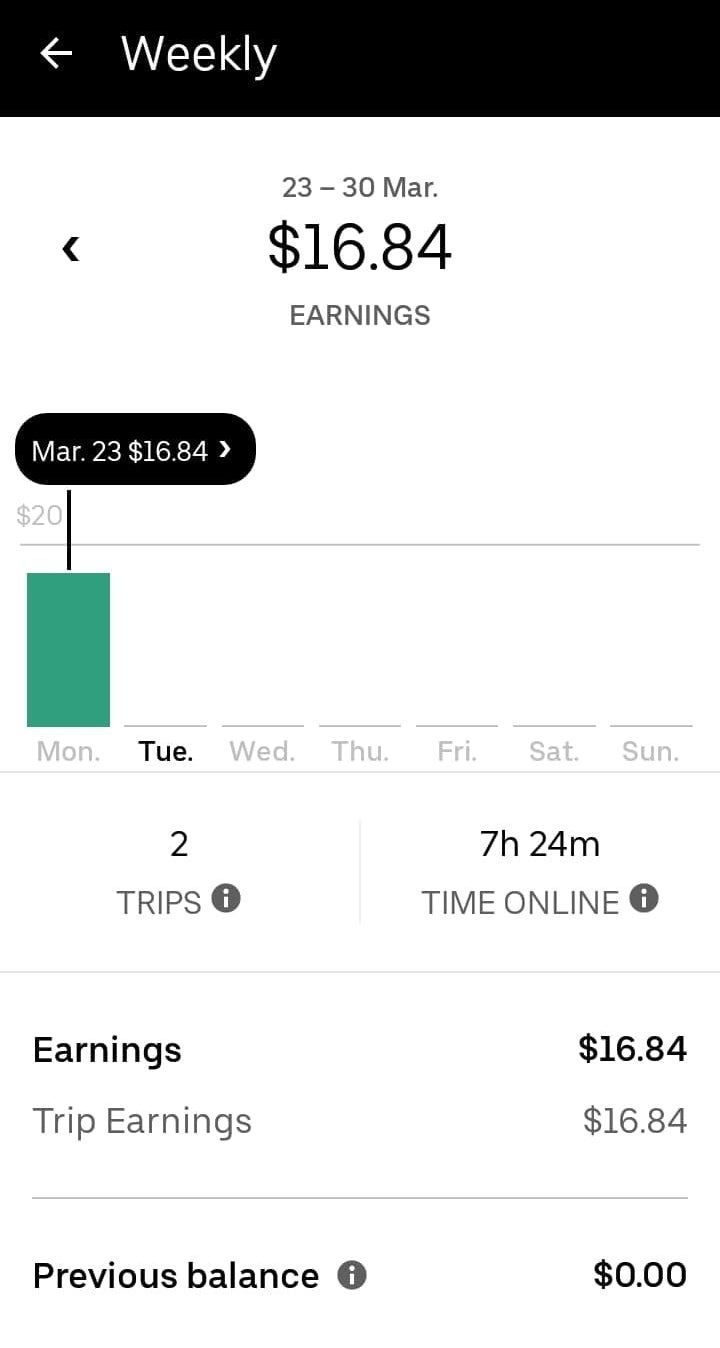The journalists at BuzzFeed News are proud to bring you trustworthy and relevant reporting about the coronavirus. To help keep this news free, become a member and sign up for our newsletter, Outbreak Today.

On Monday, Mostafa B set out to work. He switched on his Uber Eats app and drove around central Adelaide, hoping for deliveries.
In seven and a half hours he got two jobs, the city quietened by the coronavirus outbreak. He earned $16.84.
“Literally it was a zombie city,” he said. “Usually I’m driving around, at the same time I receive a delivery.”
But unlike numerous other people struggling to pay their bills at the moment — including his Australian wife — 28-year-old Mostafa won’t be getting the coronavirus supplement, or any assistance from Australia's welfare agency Centrelink at all. He is an asylum seeker who has been on temporary visas for the last seven years.

The Refugee Council of Australia, the peak body for refugee and asylum seeker organisations, is calling for the emergency welfare measures and access to public healthcare to be extended to all people in Australia in need — including people seeking asylum, like Mostafa.
“The virus doesn’t discriminate on the basis of people’s visa status or their citizenship,” Refugee Council of Australia CEO Paul Power told BuzzFeed News.
“We need to ensure that everybody who is currently in Australia and is therefore unlikely to be able to leave the country — regardless of what their status is — is healthy, is appropriately housed, and is in a position where they can observe social distancing protocols,” Power said. “If that doesn’t happen, then all of us are at greater risk of the spread of the virus.”
Mostafa, who is Iranian, was detained in late 2013 after paying people smugglers to bring him to Australia. He was released to Adelaide on a bridging visa in 2015, and has lived there since. He is in the final semester of a TAFE course on construction.
In the meantime, he met and married an Australian woman. She was seven months pregnant with their first child when, one year ago, Mostafa's caseworker told him he would no longer be getting any financial assistance from the government.
He had previously received the Status Resolution Support Services (SRSS) payment, a discretionary payment for asylum seekers, which was $480 a fortnight, lowered to $360 when he got married. The government has removed thousands of people from the payment in recent years, and now the vast majority of asylum seekers living in the community cannot access it.
His caseworker negotiated an extension with the government. That gave Mostafa 45 days to find a solution before his payments stopped.
He applied for numerous jobs but was knocked back due to his temporary visa. Eventually, a car mechanic friend told him about Uber Eats. They struck a deal: the mechanic would give Mostafa a car, and Mostafa would sign up with Uber and gradually pay him back.
The first week, Mostafa earned $100 from seven days of work. So he watched YouTube videos and researched, even calling Uber for advice on how to improve his earnings. They gave him advice on locations and times to pick up work in Adelaide. The next week he made $380. Eventually, when winter came around and Uber cyclists stayed home in the rain, he was earning around $550 a week.
His immigration process also started to move. But it ground to a halt just as quickly when he couldn’t produce identity documents fast enough — his originals had gone to the people smugglers — and his claim was rejected. An appeal was knocked back.
A court is considering the decision, but the costs are steep: a few thousand for a barrister to even look at his case, and paying the government’s legal costs if he loses.
Since he has married an Australian citizen, he may be entitled to a partner visa. But it costs over $7,000 to apply, and he can’t afford it.
During his Monday shift, with no Uber orders in sight, his wife told him to come home, worried about how they would pay for medication and other costs if Mostafa got sick from being out and about. He hasn’t worked since then.
Since giving birth to their son, his wife has returned to work as a casual receptionist at a medical centre. But when a staffer at their son’s childcare centre developed symptoms of COVID-19 after being in contact with a confirmed case, the couple self-isolated for two weeks as a precaution, and neither was able to work. The coronavirus outbreak has also added to the stress of her work, Mostafa said. “People are very stressed and they’re yelling at her”, and patients aren’t respecting social distancing rules.
As a citizen, his wife receives the parenting payment from Centrelink and is eligible for the coronavirus supplement. But Mostafa isn’t able to help at all.
“Imagine everything was OK, there was no coronavirus, I still couldn’t find a job, let alone now in this situation,” he said. “2020 is one of the worst years in my whole life.”
He is also worried about his family back in Iran. He has not seen them in seven years. “Overseas it’s worse. It’s literally people walking in the street and they're falling and dying. I hope my family will stay OK so maybe one day I can get my visa so I can see them.” he said.
Mostafa said he hasn’t complained in the last few years about his situation, and that he appreciates the help Australia has given him — “basic things” he couldn’t get back in Iran for over 20 years.
“This current situation, it’s not about me. It’s about my family,” he said. “If people don’t want to care about me, that’s fine. I can fast … But I can’t handle the pressure on my family.”
A spokesperson for the Department of Social Services said: “Welfare assistance may be available to some other temporary visa holders if they face significant financial hardship under the Special Benefit payment.” But that payment is only available to those whose protection claims have been recognised, not asylum seekers like Mostafa.
The Department of Home Affairs did not respond to BuzzFeed News’ inquiries, including as to whether SRSS recipients are entitled to the coronavirus supplement.
